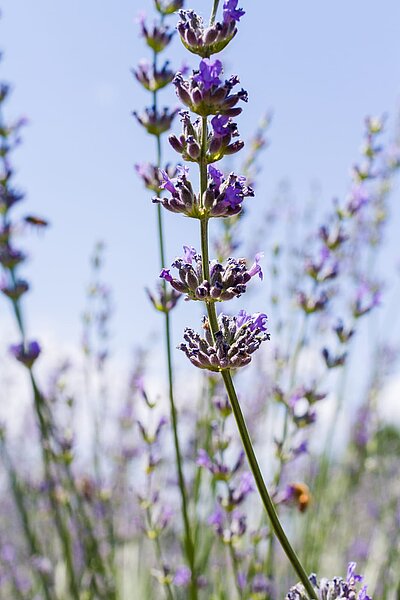Linalool

Linalool has various effects on the organism of humans and animals. It can have a calming, anti-inflammatory, antibacterial or insect-repellent effect. Linalool is therefore often used as an ingredient in cosmetics, perfumes, cleaning agents or insect repellents.
How does linalool affect dogs?
Dogs have a very keen sense of smell and are therefore sensitive to different scents. Linalool can have different effects on dogs depending on the concentration and application.
In small quantities, linalool can have a relaxing effect on dogs. For example, it can help to reduce stress or anxiety or promote sleep. Linalool can also nourish the skin and coat of dogs and prevent inflammation or infections.
However, in higher quantities or with prolonged use, linalool can also have negative consequences for dogs. It can cause irritation to the skin, eyes or respiratory tract or trigger allergic reactions. Linalool can also damage the liver or nervous system of dogs or cause symptoms of poisoning.
What should be considered when using linalool?
Linalool is not suitable for all dogs and should always be used with caution and in consultation with your vet. There are some factors that can affect the tolerance of linalool, such as
- The type and quality of the product: not all products containing linalool are the same. There is synthetic and natural linalool, which is extracted from different plants. There are also products that contain other ingredients that can be harmful to dogs. You should therefore always pay attention to the composition and origin of the product and only use high-quality and tested products.
- The dosage and frequency of use: The amount and duration of use of linalool is crucial to its effect on dogs. Too much or too often can lead to overdosing or habituation. You should therefore always adhere to the recommended dosage and not use the product for longer than necessary.
- The individual sensitivity of the dog: Every dog reacts differently to linalool. Some dogs are more sensitive or allergic than others. You should therefore always observe your dog's reaction and, if there are signs of intolerance, stop using the product and consult a vet if necessary.
Linalool is a natural substance with various effects on dogs. In small quantities, it can have a calming, anti-inflammatory or insect-repellent effect. However, in higher quantities or with prolonged use, it can also cause irritation, allergies or poisoning.
Linalool is not suitable for all dogs and should always be used with caution and in consultation with your vet. Attention should always be paid to the type and quality of the product, the dosage and frequency of application and the individual sensitivity of the dog.
If you notice any signs of hypersensitivity or poisoning in your dog, you should see your vet immediately. We are not a substitute for a vet, but we try to be as accurate as possible. Every dog reacts differently and we recommend you get a second opinion or consult your vet if in doubt.
Stay healthy and take good care of your four-legged friend!😊
Similar to Linalool
Pinenes are organic compounds that belong to the terpene family and are widespread in nature. There are two types of pinenes: alpha-pinene and beta-pinene. Both are responsible for the...
Myrcene is a naturally occurring monoterpene found in high concentrations in the essential oils of various plants and fruits, such as hops, mangoes, bay leaves, thyme and lemongrass. It is known for...
Citral is a mixture of two chemically similar substances called geranial and neral. Both belong to the group of acyclic monoterpenes, which consist of two isoprene units. Citral can be produced...
Limonene belongs to the so-called terpenes, a group of organic compounds found in many plants and animals. Limonene is one of the most common terpenes and can be extracted from various sources, for...



